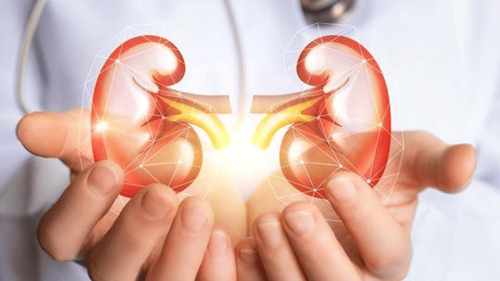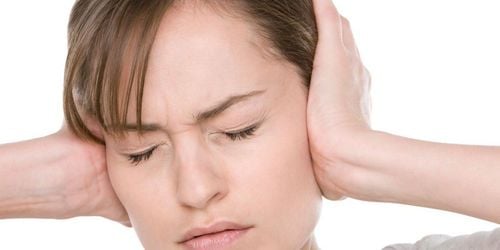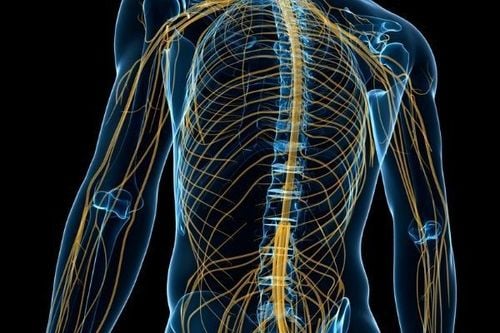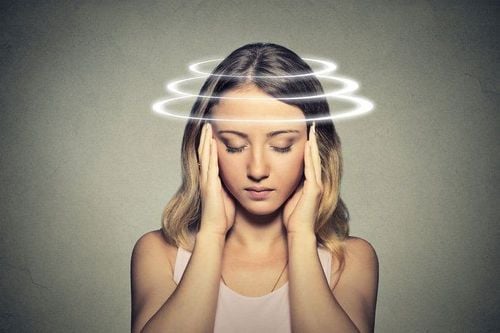This is an automatically translated article.
For vestibular disorders, some people feel dizzy after eating certain foods, while others improve their dizziness. Therefore, the diet for people with vestibular disorders will directly affect the patient's health.
1. An overview of vestibular disorders
Vestibular disorders can be caused by more than 40 diseases originating in the inner ear, nervous system or brain. It is very important to diagnose the real cause of vestibular disorders by conducting diagnostic tests and then the specialist will prescribe medication, rehabilitation therapy and recommend a diet. suitable for people with vestibular disorders based on underlying pathology.

"Rối loạn tiền đình nên ăn gì" là thắc mắc của những người đang gặp phải tình trạng này
2. Reasonable diet for people with vestibular disorders
In general, a reasonable vestibular disorder diet will include foods that can help build and support cell membranes and nerve cells. These foods contain essential anti-inflammatory unsaturated fatty acids, vitamins like vitamin B2 and magnesium that are beneficial for all cells.
This is quite important, because the cells in the body need to convert energy to serve daily living activities. When the cells in our brain, inner ear, and muscles fail and aren't working to their full capacity, we may be more susceptible to symptoms.
In addition, there are some general principles in the diet to keep in mind as follows:
Distribute food and water intake evenly throughout the day. This includes eating the same amount of food at each meal, not skipping meals, snacking if needed, and regularly; Drink enough water every day from 1500-2000ml, do not drink all the water at one time. You can drink water, milk and low-sugar juice, but absolutely do not drink coffee, tea with caffeine, alcohol or soft drinks; Food and drink should ensure low fat content, low salt, high fiber diet; Avoid foods and drinks with caffeine; Limit alcoholic beverages as much as possible; Use a diary to keep track of what you eat and drink and how you feel afterward. 3. What should not eat with vestibular disorders? So what should not eat with vestibular disorders? Here are foods that should not be eaten to avoid triggering symptoms such as:
Caffeinated foods and drinks such as coffee, tea, chocolate, energy drinks and colas. Because it can increase the feeling of tinnitus in people with vestibular disorders; Alcoholic beverages such as wine and beer: People with vestibular disorders should not drink alcohol. Because this is a disease-causing factor, adversely affecting metabolism, causing dehydration, harmful metabolites to the inner ear and brain. Alcohol can cause severe dizziness; Cheese ; MSG; Pickles and some other fermented, brewed and pickled foods; Processed foods and certain types of meat, fatty fish, organ meats, smoked meats,...; Foods containing sodium nitrate preservatives. 4. What to eat with vestibular disorders? 4.1. Vestibular disorders should eat foods rich in unsaturated fatty acids Unsaturated fatty acids are present in the membranes of nuclear and mitochondrial cells, they participate in the structure, perform a number of functions in many organs, carry beneficial in reducing the symptoms of vestibular disorders.
Because of the many benefits, so vestibular disorders should eat nothing without foods rich in unsaturated fatty acids, especially omega-3 polyunsaturated fatty acids. Omega-3 is abundant in seafood such as salmon, halibut, cod, tuna, mackerel, sardines, herring... and in some nuts such as walnuts, beans, ..
4.2. Vestibular disorders should eat foods rich in vitamins, zinc, magnesium Foods rich in vitamins B and C, zinc, magnesium help restore nerve damage, improve blood circulation. Foods rich in vitamin D support mood balance.
These foods include:
Mushrooms: Rich in vitamins B2, B3, B5 to reduce stress, tension and insecurity. Vitamin C, fiber and potassium in mushrooms reduce blood pressure and cholesterol levels, preventing the risk of cardiovascular diseases. Grapefruit, citrus: Citrus fruits always contain quite a lot of vitamin C to help increase blood circulation, improve symptoms such as dizziness, headaches in vestibular disorders. Tomatoes: A superfood that vestibular disorders should eat cannot be ignored. Not only rich in vitamins A and C, tomatoes are also considered a panacea to support the treatment of hypertension, anemia, and reduce blood sugar. Spinach (spinach): Is a leafy vegetable that contains a lot of minerals such as potassium, zinc, magnesium, iron, calcium... and vitamins. You can prepare it in many ways such as making mannequins, frying, stir-frying or cooking soup,...

Các loại thực phẩm nên và không nên ăn khi bị rối loạn tiền đình
4.3. Vestibular disorders what to eat and ginger Ginger can ease symptoms of dizziness such as nausea, lightheadedness and vomiting. Drinking ginger tea daily is quite effective in treating dizziness. However, if you have diabetes or are taking anticoagulants, it is not recommended.
The foods listed here may help some people relieve symptoms of vestibular disorders. But everyone will react differently to each food, so this is also the reason that as a general rule you should keep track of how you feel on a food diary so you can adjust your diet accordingly. best.
To protect health and prevent complications, when detecting symptoms of vestibular disorders become severe, patients need to go to the hospital to be examined by a neurologist. Currently, Vinmec International General Hospital is one of the most prestigious medical treatment units for neurological diseases in Vietnam. The Department of Neurology at Vinmec has the function of examining, diagnosing, consulting and treating diseases related to neurological factors, including headaches, vestibular syndrome, cerebellar syndrome, dementia The typical method of the department is to use intravenous and arterial fibrinolytic drugs for stroke cases, along with the combination with paraclinical means such as electroencephalography, electromyography. ST Scan, MRI,...
Neurological examination at Vinmec, customers will receive:
Examination by a team of highly qualified and experienced specialists; State-of-the-art equipment, comparable to major hospitals in the world: The most modern operating room in the world; The most modern silent magnetic resonance imaging machine in Southeast Asia; the 16-sequence PET/CT and SPECT/CT systems help to detect the damage of the nervous system early even when there are no symptoms of the disease; Apply the most advanced intensive treatment techniques in the world in treatment.
Please dial HOTLINE for more information or register for an appointment HERE. Download MyVinmec app to make appointments faster and to manage your bookings easily.













